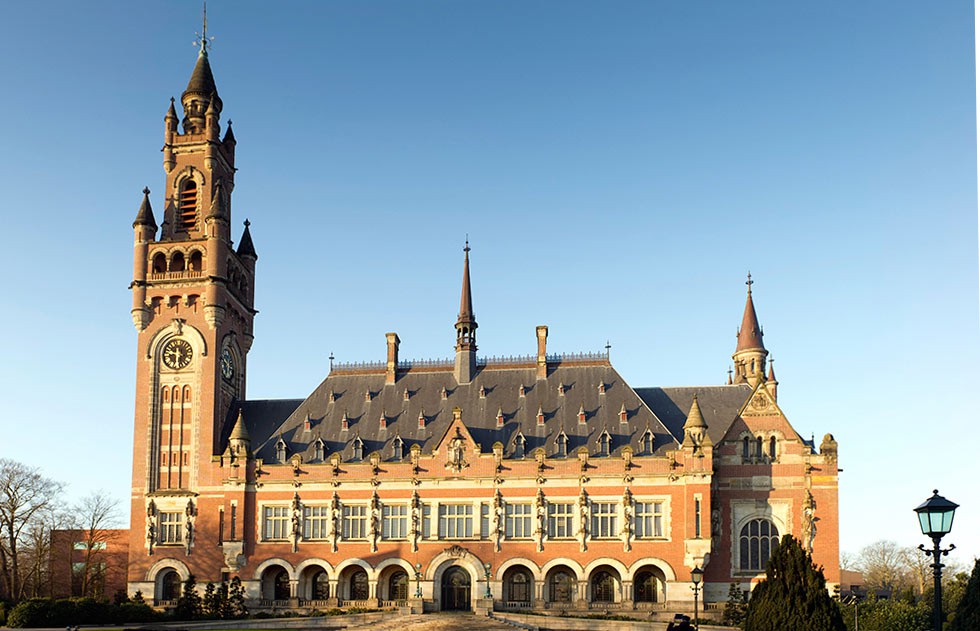About International Court of Justice (ICJ):
- The ICJ, also known as the World Court, is the principal judicial organ of the United Nations (UN).
- It was established in June 1945 by the Charter of the UN and began work in April 1946.
- The seat of the Court is at the Peace Palace in The Hague (Netherlands).
- The hearings of the ICJ are always public.
- Official Languages: French and English
- Powers and Functions: The Court may entertain two types of cases:
- First, it can act as a dispute settlement body between two member States in what are called “contentious cases.” Such disputes may concern, in particular, land frontiers, maritime boundaries, territorial sovereignty, the non-use of force, violation of international humanitarian law, non-interference in the internal affairs of States and diplomatic relations.
- Second, it can accept requests to issue an advisory opinion on a legal question referred to it by a UN body or specialised agency. These opinions can clarify the ways in which such organisations may lawfully function or strengthen their authority in relation to their member States.
- The court's judgments in contentious cases are final and binding on the parties to a case, and without appeal.
- Unlike the Court’s judgments, advisory opinions are not binding.
- The ICJ decides disputes in accordance with international law as reflected in international conventions, international custom, general principles of law recognized by civilised nations, judicial decisions, and the writings of the most highly qualified experts on international law.
- Composition:
- It consists of 15 judges, all from different countries, who are elected to nine-year terms by majority votes in the UN General Assembly and the Security Council.
- The judges, one-third of whom are elected every three years.
- Once elected, a member of the Court is a delegate neither of the government of his own country nor of any other State.
- In addition, the ICJ Statute allows a state party to a case before it which does not have a judge of its nationality on the bench to appoint a person to sit as judge ad hoc in that specific case.
- The Court is assisted by a Registry, its permanent administrative secretariat, which is independent of the United Nations Secretariat.
